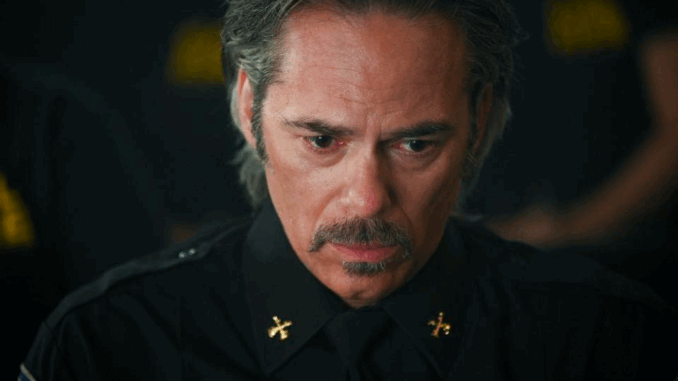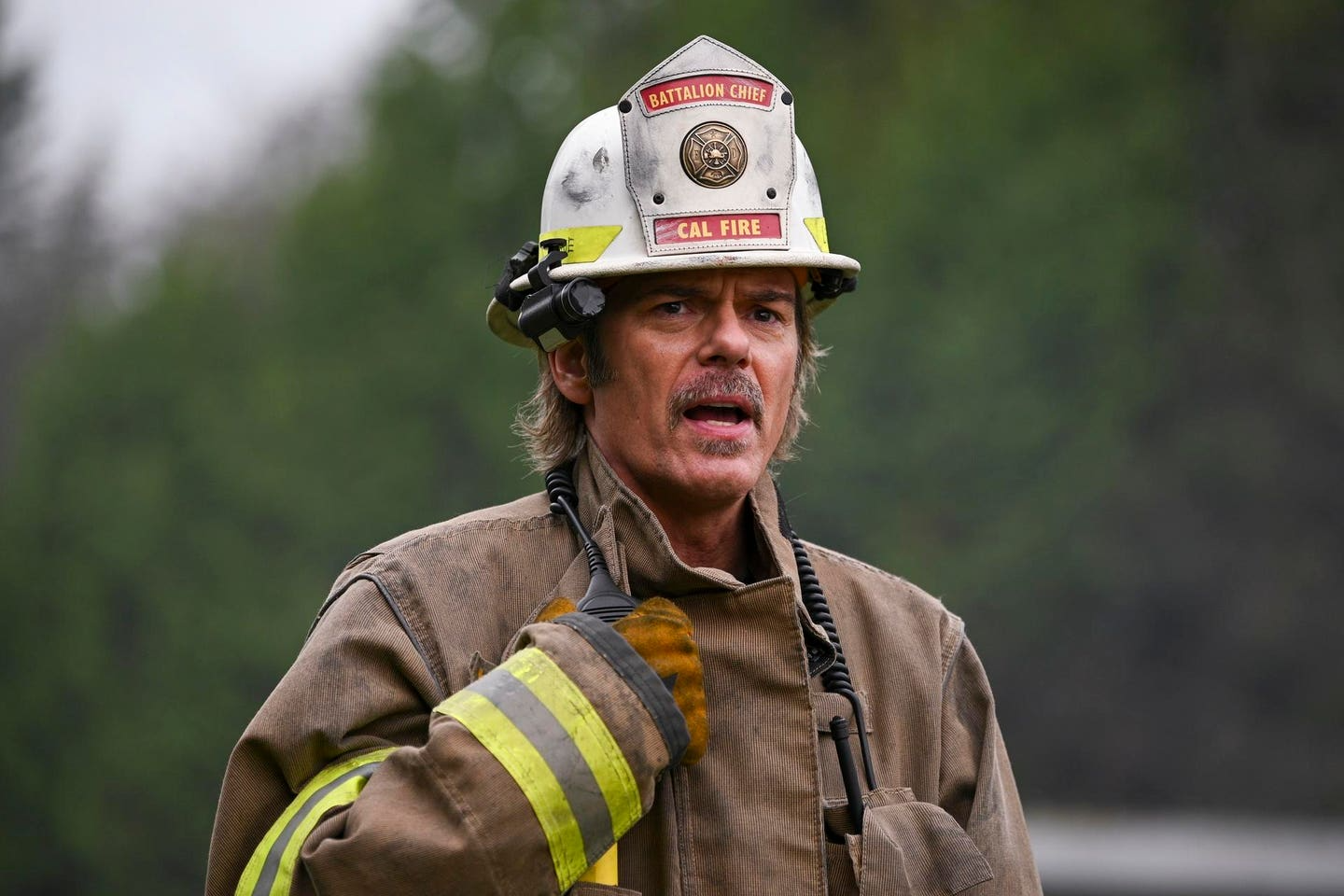
So you saw the clutch moment in the Season 3 finale of Fire Country where Battalion Chief Vince Leone (played by Billy Burke) is caught in that collapsing building, and you wondered: Why is he gone? Did Billy Burke leave the show? I’m here to walk you through what happened, why it happened, and what it means for the show going forward. We’ll dig into the creative choices, behind-the-scenes context, and what fans should expect next.
What We Know: Vince’s Fate in Season 3
At the end of Season 3, Station 42 faces the devastating Zabel Ridge fire. Vince, his wife Sharon, and the patriarch Walter are inside a memory-care facility engulfed by flames when the roof collapses. It’s a cliffhanger designed to shake the story’s core.
Reports surfaced that Billy Burke would not return as a series regular for Season 4, prompting speculation that Vince’s fate is sealed.
Behind the scenes, producers admitted they made the decision to remove a major character to reflect real-life risk and raise stakes.

Why the Exit Was Creative, Not Budget-Cut
When rumors hit that Vince was being written off as a “cost-saving” move, showrunners shot that down. They explained the decision wasn’t about money—it was about authenticity and storytelling. First responders face danger, and the show wanted to lean into that.
In short: they chose which character would leave not because they had to, but because it served the narrative. Vince’s death became a catalyst.
Billy Burke’s Exit: Voluntary or Written Out?
Here’s where it gets intricate: Burke’s departure wasn’t clearly defined as his choice or solely the writers’. There was no public statement from Burke saying “I’m leaving.” But outlets reported he would not be a full-time cast member in Season 4. Meanwhile, producers hinted the decision was part of the story’s evolution.
The takeaway? His exit had both personal and creative dimensions—but the public information emphasizes the latter: story need > status quo.
What Vince Represented to the Show
Vince was more than just a battalion chief. He was the anchor of Station 42, the link between legacy (his father Walter) and the future (his son Bode). He was moral center, paternal figure, and the guy who kept things together. Killing or removing him means everyone else has to step up, change, evolve.
Think of Vince’s exit like the engine of a train being removed—you still run the train, but the dynamics shift dramatically.
How the Writers Justified the Exit
The creative team explained that to honour the reality of wildland firefighting, someone needed to pay the ultimate price. They had discussed several characters leaving, but ultimately picked Vince because his arc had reached meaningful closure and his absence would push the story into uncharted waters.
They also revealed that even the cast didn’t know exactly how it would end when they filmed the finale—keeping that rawness in the performances.
The Show’s Strategic Timing for Departure
It wasn’t a surprise by accident. The show made the announcement indirectly, the trailer confirmed Vince’s death ahead of the Season 4 premiere, giving viewers time to process. This choice helped turn the exit into a story moment, not merely a shock cut.
It also aligned with launching the spin-off Sheriff Country, giving the franchise a chance to pivot.
Impact on Other Characters: Bode, Sharon & Station 42
With Vince gone (or nearly gone), the domino effect is huge.
-
Bode (Max Thieriot) must carry the Leone legacy while dealing with grief.
-
Sharon (Diane Farr) faces life without her partner and his guiding presence.
-
Station 42 no longer has its rock—they have to redefine themselves.
The loss forces each character into growth mode; it’s no longer rescue fire after fire—it’s rescue and rebuild.
What This Means for the Season 4 Storyline
Season 4 becomes a “what comes next” season rather than only putting out the blaze. The writers say they’re shifting from the physical fires to the emotional ones. Leadership vacuum, identity crisis, legacy concerns—these are now front and centre.
It means new Chief, new dynamics, new dilemmas. And yes—exit shockwaves will echo.
Fan Reactions: Shock, Sadness & Some Frustration
Unsurprisingly, fans reacted hard. Vince was a favourite, Billy Burke was beloved, and killing that dude off—or removing him—felt like losing a comfort zone.
“He was the only reason I watch the show,” read one Reddit comment.
Some viewers threatened to drop the show. Others posted heartfelt farewells. The showrunners are aware—the loss is part of the new chapter.
What the Exit Doesn’t Mean
Just because Vince is gone doesn’t mean the character or actor is done forever. Guest spots, flashbacks, legacy mentions—they all remain in play. Also, the exit doesn’t reflect any public dispute or scandal—it’s portrayed as a planned evolution.
So don’t assume behind-the-scenes drama; assume story motion.
How the Exit Elevates the Show
Yes, losing a major character is risky. But the showrunners believe it will elevate Fire Country. It opens up space for new leadership, fresh storylines, and deeper emotional stakes. Sometimes growth comes from what you leave behind, not just what you build ahead.
If done well—and that remains the question—it’ll mark a stronger next season.
The Spin-Off Factor: Why the Timing Matters
With Sheriff Country about to expand the TV universe, Vince’s exit helps clear the deck. It signals that things are changing. The world of Edgewater is bigger than Station 42 alone now. Removing a big piece allows new puzzle pieces to click in.
It’s smart franchise strategy: change the status quo before you branch out.
Will the Show Survive Without Vince?
Here’s the key question. Yes—shows have survived big losses. But they survive when the story honours the exit and evolves authentically. The writers seem aware. The stakes are real. The shift is intentional. If Fire Country leans into the pain and uses it as fuel rather than grief for grief’s sake, it could soar.
If not—fans will remember Vince’s loss as the moment the show lost its heart.
Final Thoughts: Vince’s Legacy Lives On
Billy Burke’s exit and Vince’s death (or disappearance) isn’t just a headline—it’s a story moment. It’s messy, emotional, dangerous—and very much the world of firefighting. For the fans who loved Vince, it will hurt. But for the show that loved its firefighters, it may set the stage for its truest test yet.
As the flames die down and the smoke clears, what rises from the ashes will define Edgewater’s future.
Conclusion
So, why did Billy Burke leave Fire Country? Because the story demanded it. The writers, producers, and actor aligned (publicly anyway) to create something bold. Vince’s departure signals a new era: one where loss isn’t just physical—it’s emotional and structural. It means Station 42 has to learn to stand without its guiding light. It means characters we love must evolve. And it means we should expect more than fires—they’re fighting the fallout now. Whether you’ll love that new chapter depends on how true the show stays to its characters, its tone, and its heart.
FAQs
Q1: Was Billy Burke fired from Fire Country?
No. The departure appears to be a creative decision by the showrunners rather than a direct “fired” scenario. The show wanted to reflect realistic risks and change.
Q2: Does Vince Leone definitely die in the show?
For all intents and purposes, yes. The trailer and promo material confirm Vince won’t return as a series regular, and the story sets up his funeral and legacy.
Q3: Could Billy Burke return as a guest star?
Potentially. Shows often bring back characters for flashbacks or special episodes. While not confirmed, it isn’t ruled out.
Q4: How will the show shift without Vince?
Expect leadership shake-ups, emotional arcs around legacy, identity, and grief. Station 42 will change its culture and the show will explore deeper emotional terrain.
Q5: Does Vince’s exit affect the Sheriff Country spin-off?
Yes. The timing and narrative shift align with the franchise expansion. Vince’s exit helps clear narrative space and prepare the world for broader crossover opportunities.
